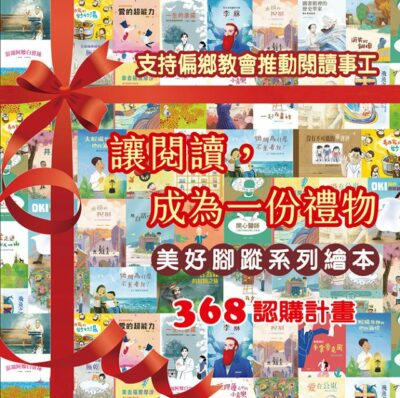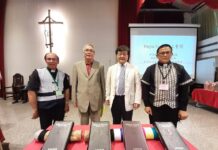Taiwan Church News
3376 Edition
November 7 – 13, 2016
Church Ministry
Taiwan New Literature Under Japanese Ruling As A Historical Witness To Taiwan’s Identity
Reported by Chen Yi-fan
In the morning on November 5, Mr Lee Nan-heng, a PCT member and an expert of Taiwan literature, was invited by National Museum of Taiwan Literature(NMTL) to deliver a speech about his personal engagement of Taiwan literature under Japanese ruling period(1895 – 1945) for the general readers.
Dr Liao Chen-fu, director of NMTL, introducing Mr Lee as a brave pioneer and diligent archives collector of Taiwan literature since the days under martial law. In the time of military blockade on Taiwan island, Mr Lee had edited and published his famous tome – Taiwan New Literature Under Japanese Ruling – in a 5-volume-set in 1979.
“Why I began to visit those Taiwanese writers under the period of Japanese ruling?”, self-asked Mr Lee at the beginning of his speech, “because I want to publish a book exclusively on Taiwan literature”. Retrieving his three months’ stay at Singapore in early 1970s and accidentally found many Chinese literary works published in 1930s, Mr Lee lamented to question himself one question: when could Taiwan have such a great literary achievement as those Chinese works? As a matter of fact, Mr Lee was a fan of the Chinese literature before 1970s.
“In the beginning of my literary career, I intent to publish a magazine mainly for the children”, said Mr Lee, “so I went to visit Mr Wang Seh-lang who had been a magazine editor for children and teenager since 1955″. “Wang told me that if I didn’t have any support from a financial corporation, my dream of publishing children magazine would be dashed away for sure”, reflected Mr Lee, and its prophecy really came true after I have published three issues of a children magazine though highly evaluated then.
During his interactions with Wang, said Mr Lee, “one day, in a quite random occasion, I asked him in a daring manner that is there any thing called Taiwan literature?” And I received his prompt response in dismay, said Mr Lee, replying “Certainly a lot of them! Not only in the Japanese, but also in the Chinese!”. At that very revealing moment, I decided to publish those past works of Taiwan literature if I could found them, said Mr lee.
Through the guidance and recommendation of Wang, Mr Lee started to learn multiple facets of Taiwan literature, arts and drama by delving into newspapers like Taiwan Peoples’ News, Taiwan New Peoples’ News and Taipei Antiques. Many Taiwanese writers under Japanese ruling period, like Huang Tej-shi, Yang Yun-ping, Yeh Zong-chong, Yang Quei, Wang Hsu-hsiung, and Long Ying-tsong were all became Mr Lee’s acquaintance and resources to figure out a historical picture of Taiwan literature due to Wang’s introduction, said appreciatively Mr Lee.
“When I decided to publish the complete works of Lai Ho as the first volume of my series book for Taiwan literature, all those respectable writers I’ve known via Wang’s connections all agreed this is a right decision and affirmed Lai Ho’s outstanding contributions to Taiwan literature”, said Mr Lee.
Talking about the episode of his difficult times, when his 5-volume-set of Taiwan New Literature Under Japanese Ruling was just published, Mr Lee said he wrote to 100 oversea’s college libraries inquiring whether they would purchase this set of books or not? He got 70 more overseas libraries replying positively, but received none after writing the same inquiry to major colleges or university in Taiwan, regretted Mr Lee.
“My publication of Lai Ho’s complete works, as the first volume of Taiwan New Literature Under Japanese Ruling, is always deemed as an unprecedented dare action by the common readers and commentators. But that is not my real goal on this tome of 5-volume-set. In fact, to let the future scholars of Taiwan literature studies waste no time to find the real treasures, volume 2 to 5 about the works of Taiwanese fiction, poetry and archives data under Japanese period are the real substance to track down the genesis and formation of Taiwan’s identity in modern history”, said Mr Lee.
Translated by Peter Wolfe
.jpg)
Mr Lee Nan-heng(right), an invited speaker, and Dr Liao Chen-fu(left), director of National Museum of Taiwan Literature(NMTL), took a picture with the audience in the front row of lecture hall in NMTL on 5 November 2016.
Mr Lee Nan-heng in speech.
Photos by Chen Yi-fan

.JPG)





